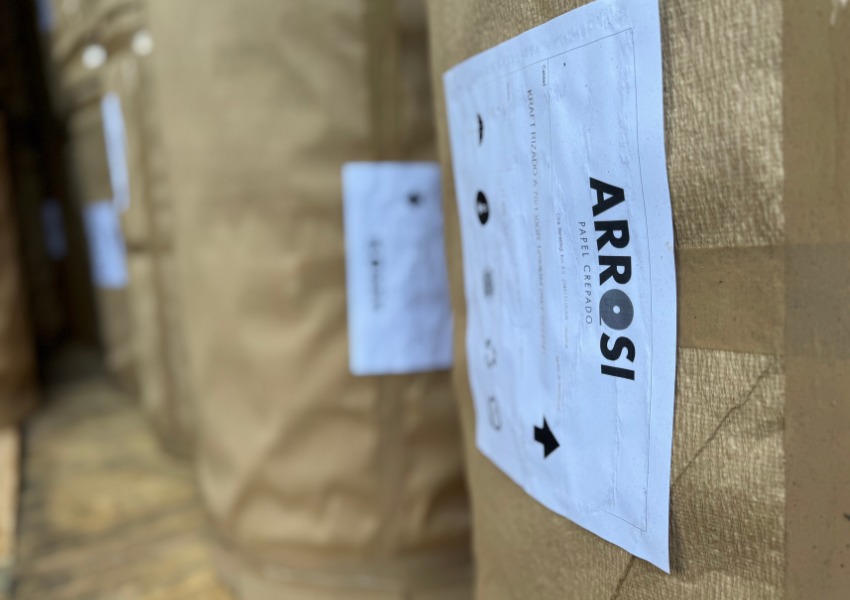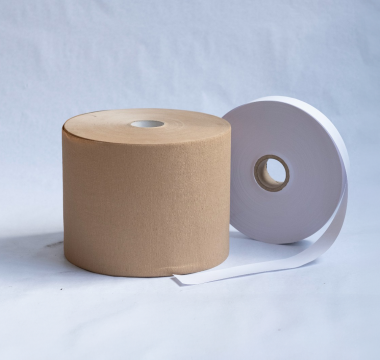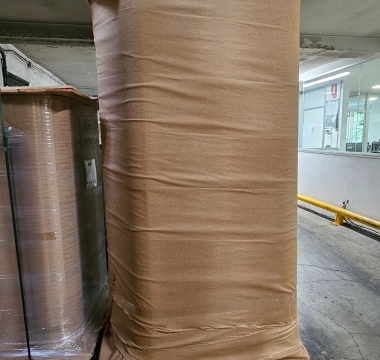The Challenge of Industrial Packaging in a Sustainable World
For decades, plastics dominated the packaging industry due to their low cost and flexibility. However, their environmental impact and the complexity of recycling have triggered a paradigm shift. Today, companies face a dual challenge: ensuring technical protection for products while reducing the ecological footprint of their sustainable packaging.
The key factors driving this transformation include:
- Stricter European regulations, such as the SUP Directive and the Circular Plastics Strategy.
- Consumer expectations increasingly aligned with environmentally responsible brands.
- Plastic waste management costs that impact profitability.
- The need for innovative packaging that combines sustainability and logistical efficiency.
Sustainable packaging based on paper not only meets these demands, but also becomes a strategic asset that enhances brand image.
Paper as the Foundation for Sustainable Packaging
Industrial paper has evolved beyond its traditional role as a wrapping material. Today, it is a technical material, engineered to meet resistance, flexibility, and compatibility requirements with automated processes. Key advantages of paper for industrial sustainable packaging include:
- Renewable raw material: cellulosic fibers from responsibly managed sources.
- Recyclability: easily reintegrated into circular economy cycles.
- Biodegradability: decomposes naturally, avoiding persistent waste.
- Adaptability: available in a wide range of weights, finishes, and coatings.
- Positive eco-image: enhances a brand´s environmental responsibility.
This positions paper as the cornerstone in designing sustainable packaging across industrial sectors.
Paper Solutions for Strategic Sectors
At Arrosi, we develop technical papers for specific applications that combine performance with sustainability. Below are the main fields of application:
Sack Closing and Stitching
Crepe paper ensures strength and airtightness when stitching industrial sacks, protecting the thread from abrasion and ensuring compatibility with standard machinery. In addition to cellulosic options, there are also PE-lined and Hot-Melt reinforced edging solutions adapted to the specific demands of the agri-food industry.
Food Industry
Safe food contact requires materials that meet strict regulations. Paper offers technical alternatives such as:
- Grease-resistant papers for bakeries and food service.
- Waxed papers to extend freshness.
- Heat-sealable papers compatible with automated processes.
All these options replace plastic films with safe, recyclable cellulosic alternatives, contributing to more sustainable packaging.
Bookbinding
Crepe paper is used as spineboard in hardcover book production. Its flexibility and strength provide a long-lasting finish, improve appearance, and ensure structural stability in industrial bookbinding processes.
Packaging
Transporting metal, ceramic, or glass parts requires sustainable packaging that protects surfaces and absorbs impacts. Paper-based solutions include:
- Crepe paper for cushioning and dividers.
- PE-coated kraft paper for moisture resistance.
Wet Wipes
In hygiene product manufacturing, crepe paper is used as an absorbent and durable material for wet wipes—offering both functionality and sustainable packaging in a sector with high innovation demand.
Electrical Insulation
Crepe paper for electrical insulation plays a crucial role in manufacturing transformers, industrial motors, and high-voltage applications. It provides stable dielectric properties and a sustainable alternative to plastic-based materials.
Poultry and Piglet Transport
Crepe paper serves specific roles in livestock farming:
- Chick start-up paper that ensures hygiene and helps chicks adapt to their environment.
- Transport paper for piglets, enhancing comfort during travel and simplifying cleanup.
Both solutions combine functionality, animal welfare, and sustainable packaging principles.
Boutique Bag Manufacturing
High-strength kraft paper is used to produce luxury shopping bags. It allows for color customization, high-quality printing, and tailored designs, providing a premium, sustainable alternative to plastic.
Paper at the Core of Sustainable Packaging
The industrial market demands packaging solutions that combine technical safety, logistical efficiency, and environmental responsibility. Paper—in its technical formats such as crepe, kraft, waxed, or grease-resistant—stands out as the key material to meet these needs.
Adopting paper-based sustainable packaging is not only a response to current regulations, but a strategic decision that strengthens competitiveness, enhances brand perception, and contributes positively to the environment.
Ready to Transition to Sustainable Packaging in Your Industry?
At Arrosi, we design and manufacture technical paper solutions tailored to the specific needs of each sector. Contact us and discover how we can support your sustainable packaging goals.




